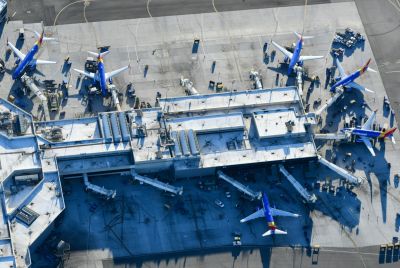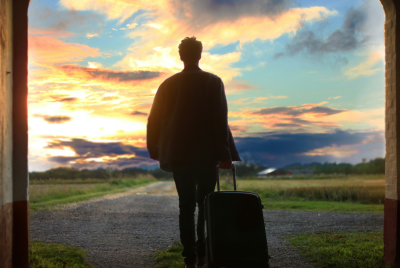What Does The New Covid Strain Spreading Across The UK Mean For Travellers This Summer?
The new strain has health officials urging the public to get vaccinated against the virus.

As a new strain of COVID-19 spreads around the globe including throughout the UK, British travellers are wondering whether their summer trips could be affected by the virus' latest outbreak.
The new variant, known as NB.1.8.1 has been detected in the UK by the UK Health Security Agency (UKHSA) with 13 cases being recorded in England last week. However, the number of cases may be significantly higher given the lack of people testing compared to five years ago.
The World Health Organisation has classified NB.1.8.1 as a 'variant under monitoring' and said that the new strain appears to transmit more easily than other strains.
With many Brits' summer trips fast approaching, here's everything you need to know about NB.1.8.1 in regards to travel and your safety.
What We Know About NB.1.8.1
NB.1.8.1 was first detected in January and rapidly spread across China and Hong Kong. It has since been detected across Europe, Asia, and North America, and now accounts for 10% of infections across these regions, according to the World Health Organisation.
It derives from the Omicron variant and produces similar symptoms.
NHS England – North West reported symptoms as including a 'razor blade' sore throat, swollen neck glands, and common COVID-19 symptoms such as a high temperature, aches, and a blocked nose.
No COVID-19 Restrictions For UK Travel
Currently, there are no Covid restrictions put in place by the government for travellers coming in and out of the UK.
The Department for Transport (DfT) has also withdrawn it's most recent guidance for travellers coming to England from another country which was last updated in April 2023.
Brits and international travellers are not required to take a Covid test, quarantine, or complete a UK passenger locator before or after they travel in/out of the UK.
However, the NHS still recommends that those with Covid symptoms take precautionary methods to protect others around them.
'If you have symptoms and need to leave the house, our advice remains that you should consider wearing a face covering,' said Dr. Jamie Lopez Bernal, Consultant Epidemiologist at UKHSA.
'Washing hands regularly and using and disposing tissues in bins can reduce the spread of respiratory illnesses, as can ensuring that indoor areas are well ventilated,' he added.
Health Officials Make Urgent Last Call For Vital Jabs
While vaccinations make no difference to whether travellers can enter or exit the UK, health officials are making an urgent call for Brits to get their COVID-19 jab before next week when the spring vaccination programme ends.
NHS England – North West points out that while the newest variant seems to be spreading easier than previous strains, vaccinated individuals are highly protected against more serious outcomes like hospitalisation or death.
'The vaccine is effective against the new variant and remains our best defence against severe illness,' said Dr Michael Gregory, Regional Medical Director for NHS England in the North West.
Over 400,000 people have been vaccinated across the North West region since the programme began in March.
The last day the public can book an appointment for their covid vaccination is 16 June, with walk-in clinics also being available. Brits can find their nearest walk-in clinic in England here.
© Copyright IBTimes 2025. All rights reserved.






















